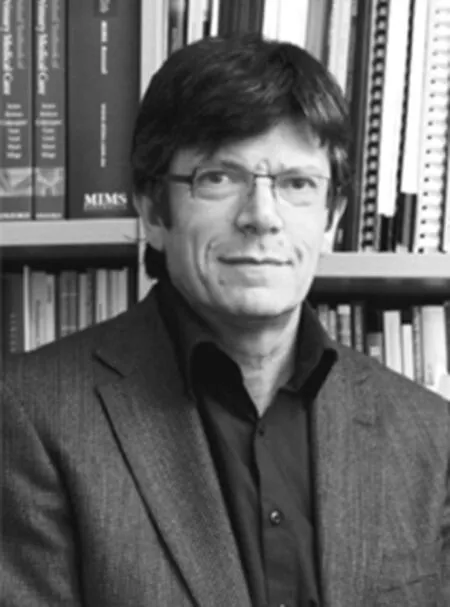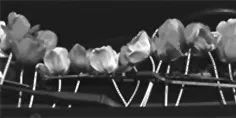,周海铃(译),黄文静(译),杨 辉(译)
1.3168 Monash University,Melbourne,Australia 2.518003 广东省深圳市,罗湖医院集团黄贝岭社区健康服务中心
·世界全科医学工作瞭望·

《The Medical Republic》案例分享
——当临床服务还有其他意思的时候,会让人感到困惑
LeonPiterman1,周海铃(译)2,黄文静(译)2,杨 辉(译)1
1.3168MonashUniversity,Melbourne,Australia2.518003 广东省深圳市,罗湖医院集团黄贝岭社区健康服务中心
注:本文首次刊登于《TheMedicalRepublic》
全科医生;职业关系;职业边界
PITERMAN L.当临床服务还有其他意思的时候,会让人感到困惑[J]. 周海铃,黄文静,杨辉,译.中国全科医学,2017,20(28):3468-3470.[www.chinagp.net]
PITERMAN L.When clinical caring becomes confused for something more[J].ZHOU H L,HUANG W J,YANG H,translators.Chinese General Practice,2017,20(28):3468-3470.

一般而言,医生,特别是全科医生,会与患者及其家属形成密切的职业关系。我们分享他们的喜悦,也受到他们悲伤情绪的影响。然而,我们需要时刻保持这种关系的职业性,有实际案例表明,如果不适当地跨越了职业边界,医生将会面临暂停执业、注销注册的危险,在某些情况下甚至有可能会面临刑事指控。培训是为了让我们明确这些职业边界,采取符合职业伦理的行为,从而避免把临床服务误解为眷爱或个人关照。在处于危险状态的时候,患者及其照护者会表现得较为脆弱,并且有可能会把全科医生在此时提供的帮助误解为别的意思。
简的故事
简,30岁,与母亲露易丝同住,并由母亲照顾她。露易丝,65岁,患有晚期乳腺癌。简的丈夫克里斯,35岁,是一名采矿工程师,经常在州际或海外旅行。简和克里斯有一名3岁的女儿斯蒂芬妮,在当地上托儿所。简的父母很多年前就离婚了,父亲已经再婚,居住在新西兰。简没有兄弟姐妹,是家里唯一的照护者,她认为自己是“三明治一代”,既要照顾病重的妈妈,也要照顾年幼的孩子。
露易丝在我所在的诊所就诊了20余年,8年前被诊断为晚期乳腺癌。虽然看起来她的癌症似乎已经得到了控制,但后来还是出现了骨转移和肺转移,转移癌治疗无效,目前她正在接受姑息治疗。我是姑息治疗团队的一员,每个星期都要去探望露易丝1次,给她开药,倾听她和简诉说遇到的难题,并且给她们提供支持和建议。家访很简单,露易丝和简居住的地方离诊所只有几百米远,而且她们通常会给我冲一杯咖啡。我为露易丝提供服务的时间久了,觉得可以把我的家庭电话号码告诉她,以备发生紧急情况的时候联系我。当时,我确信她们不会无缘无故打电话给我。
我的车经常停在离诊所最近的“医生专用”车位上。后来我发现,很多时候,事实上几乎每隔一天,我汽车前挡风玻璃的刮水器下都会插着一朵花。起初我并没有在意,但后来因为在车上插花这件事太有规律了,所以我察觉到我一定是有了一个秘密的崇拜者。我向诊所的同事们提及此事,他们对此一笑了之。
接着电话来了,刚开始是打到诊所的,通常在中午。一名女性告诉接诊员:“请您通知里昂,我们在老地方见面吃午饭……他知道在哪儿。”打电话的人没有留下任何身份线索。接诊员带着狡黠和猜疑的笑容,告诉我那个有规律的午餐约会,我很难让她相信我并不知情。后来,午餐约会变成了晚餐约会。然后,我开始在家里接到电话,电话里传来沉重的呼吸声。如果我的妻子接电话,沉重的呼吸声就不见了。电话打得实在太频繁了,最后我不得不请电信公司在适当的地方设置分机。
照顾了露易丝这么久,我觉得给她我的家庭电话号码以备不时之需是合理的。
我通知了当地警察,警察表示,因为没有犯罪证据,所以不能为我提供帮助。然后我通知了医疗保护组织,他们答应会为我提供支持,并给我做了登记。在此期间,我继续为露易丝提供家访。当我发现,简会特意因为我的来访而花很长时间精心打扮、穿着时尚衣服时,我开始怀疑了,但只是怀疑。直到诊所里的一名接诊员亲眼看到她把花放在我汽车的挡风玻璃上,谜团才终于揭开。
我感觉受到了侮辱、遭受了冒犯,并感到困惑,我需要心理咨询和指导。另外,我觉得我不能再为露易丝提供服务了,医疗保护组织也建议我把照顾露易丝的工作转交给诊所里的其他医生。我为露易丝担心,很显然她并没有意识到简的行为,还可能会认为是我嫌弃她。但是,我别无选择,只能放弃对露易丝的照顾。我很快安排了一个假期,以此为理由请别的同事来接替我去照顾露易丝。与简当面谈这个问题是件很困难的事,我选择通过电话来跟简说清楚。一周后,我收到了简发来的一封长长的道歉信,信中概述了她对我的那种难以说清楚的感觉,她在婚姻中遇到的困难,她不知道如何面对即将去世的妈妈。我很理解她,她感到很失落。但是,我不可能是她的救星。
有时候,我们的职业标准和未来所遭遇的危险,超过了照顾患者的需要。上述的故事就是其中的一种情况。4周后露易丝去世了,简离开了她的丈夫,搬到了新西兰。后来,我收到简寄来的圣诞卡,告诉我她找到了新爱,并感谢我对她母亲的照顾。
译者注:职业关系(professional relationships)——因为某专门工作而形成的人与人之间的关系,如医患关系、师生关系、警民关系、干群关系、上下级关系等。职业关系是人际关系中的一种特定关系,并因职业的性质、特征、应遵从的职业守则和伦理,被赋予特定职业关系的特定范围、边界及行为规范。职业边界(professional boundaries)——医患(护患)关系的重要内容,是肉眼看不到的结构,是关系双方对各自行为的合理性控制。职业边界是法律、伦理、职业标准所决定的,并尊重医生/护士和患者/家属双方权益,以建立起安全的、仅以治疗目的为联系的医患关系,任何一方“越界”都是对尊重和信任的背叛。
志谢:特别感谢原文出版者《The Medical Republic》同意将此文编译后刊登于《中国全科医学》。
Doctors in general,and GPs in particular,form close professional relationships with patients and their families.We share in their joys and we are affected by their sorrows.
However,at all times those relationships need to remain professional,and in instances where boundaries are inappropriately crossed doctors run the risk of suspension from practice,deregistration and,in some cases,may face criminal charges.
Our training prepares us to define those boundaries and to act ethically to avoid circumstances where clinical care is misconstrued for loving,personal care.
Patients and their carers may find themselves vulnerable during times of crisis and may misconstrue the attention that we,as GPs,give in difficult circumstances.
The case of Jane,below,illustrates the difficulties that arise when patients themselves cross boundaries.
Jane′sstory
Jane was aged 30 and was living with,and caring,for her 65-year-old mother,Louise,who had terminal breast cancer.She was married to Chris,a 35-year-old mining engineer who was often travelling interstate or overseas.They had a three-year-old daughter,Stephanie,who attended a local crèche.
Jane′s parents divorced many years ago and her father had remarried and was living with his family in New Zealand.Jane had no siblings,so was the sole carer,and found herself part of the "sandwich generation" looking after a critically ill mother and a young child.
Louise had been a patient of our clinic for 20 years.The breast cancer was diagnosed eight years earlier and,although apparently eradicated,returned with bone and lung metastases which had not responded to treatment,and she was now in palliative care.
As part of the palliative care team I visited Louise on a weekly basis,prescribed her medications,listened to the difficulties she and Jane were encountering,and offered support and advice.Home visits were made simple as Louise and Jane lived only a few hundred metres from the clinic and were often accompanied by a welcome cup of coffee.Having cared for Louise for such a long time I felt it reasonable to supply my home number in case of emergencies.I was sure this would not be abused.
My car was often parked in an allocated "Doctors Only" space close to the clinic.On a number of occasions,in fact almost every second day,I noted a flower placed under the windscreen wiper of my car.
At first I didn′t think much of this,but given its regularity,I felt I must have a secret admirer.I mentioned this to my colleagues who laughed it off.
Then the phone calls came.At first they were directed to the clinic and would generally happen around midday.The female voice told the receptionist:"Please let Leon know that we will meet for lunch at the usual place … he will know where it is." No identification was offered.
With a wry and suspicious smile,the receptionist informed me about my regular lunch-time date.I found it hard to convince her of my ignorance,or my innocence.These lunch-time dates turned into dinner dates.And then I began to receive calls at home,accompanied by heavy breathing.
When my wife answered the phone the heavy breathing was absent.The calls were so frequent that eventually I had to arrange for Telstra to put diversion mechanisms in place.
Having cared for Louise for such a long time I felt it reasonable to supply my home number in case of emergencies.
I notified the local police who informed me that no crime had been committed so there was little they could do.I notified my Medical Defence Organisation,which offered support and recorded my story.During this time I continued to visit Louise.I became suspicious when I noticed Jane went to some lengths with make-up and stylish clothing for my visits,but it was not until one of our receptionists caught her red-handed placing a flower on my windscreen that the mystery was solved.
I felt insulted,violated and confused and needed advice and counselling.
I also felt that I could no longer care for Louise and was advised my Medical Defence to hand her care over to another doctor in the clinic.
I was concerned for Louise.She was clearly unaware of Jane′s activities and would be concerned that I had abandoned her.However,I had little choice.
A timely holiday break gave me an excuse to hand over her care.Confronting Jane was difficult and I chose to do this by phone.A week later I received a long letter of apology which outlined her confused feelings for me,as well as the difficulties she was experiencing in her marriage in addition to dealing with the imminent death of her mother.Understandably,she felt lost.However,I was not in a position to be her saviour.
There are times when the risks to our professional standing and our future outweigh the need for patient care.This was one of those occasions.
Louise died four weeks later.
Jane subsequently left her husband and moved to New Zealand.I later received a Christmas card from Jane informing me of her new-found love and thanking me for caring for her mother.
WhenClinicalCaringBecomesConfusedforSomethingMore
General practitioners;Professional relationships;Professional boundaries
R 197
A
10.3969/j.issn.1007-9572.2017.28.004
2017-09-10)
(本文编辑:王凤微)
编者按澳大利亚的全科医生具有行业自律性,体现在其自行制定行业标准、自主进行资质考核及自主执业等方面,也体现在《The Medical Republic》这一共享平台上。Leon Piterman是医学学士,医学博士,教育学硕士,英国医生学会会员,澳大利亚全科医生学会会员,Monash University副校长、全科医学教授,从事全科医学临床服务近40年;研究兴趣为慢性病管理、心理健康、医学教育;曾获澳大利亚勋章,医学部医学教育奖,澳大利亚全科医生学会研究奖,香港全科医生学会研究奖等;获多项澳大利亚卫生和医学研究理事会等大型研究项目,发表科学文章和著作章节120余篇,是《全科医学中的精神病学》合作著者。Piterman教授建议我国的全科医生应培养“共和”思想,以为全科医学领域提供更多的平等交流机会。目前Piterman教授定期为《The Medical Republic》撰写文章,本刊深受“医学共和”思想的启发,特邀本刊编委Monash University杨辉教授对Piterman教授的文章进行编译,并进行连载刊登!本期Piterman教授为我们讲述了一例跨越了职业边界患者的案例,职业边界是医患(护患)关系的重要内容,患者在脆弱状态下会对全科医生无微不至的照顾产生误解,而全科医生应具备一定的职业素养,应懂得采用符合职业伦理的行为与患者沟通并保护自己,敬请关注!



